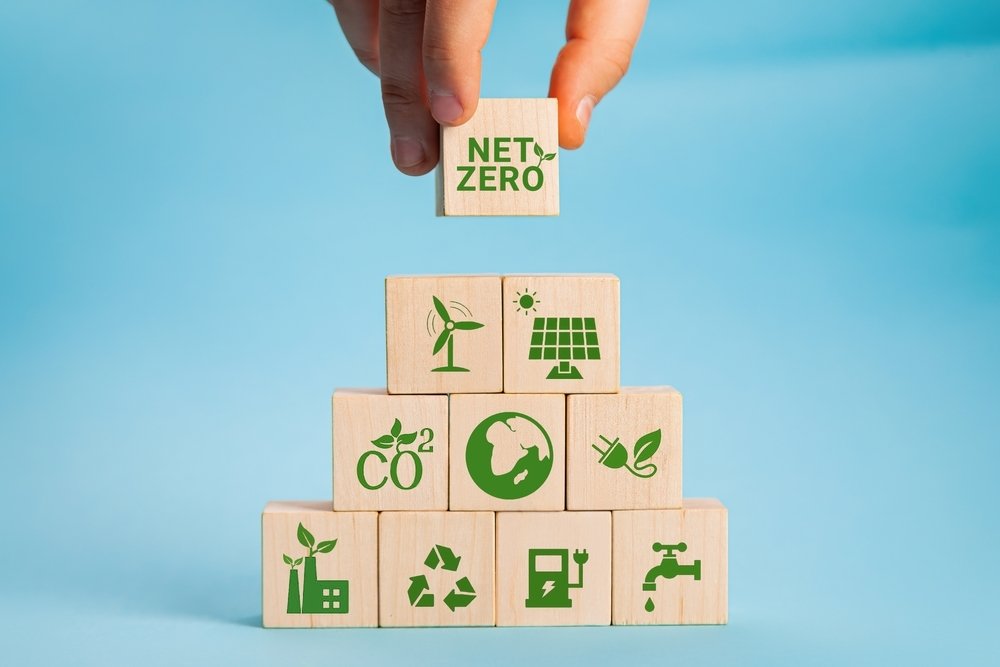© Turkuvaz Haberleşme ve Yayıncılık 2024
In Daily Sabah's news article published Oct. 21 titled "Türkiye expected to enact climate law this year,” Environment, Urban Planning and Climate Change Minister Murat Kurum is quoted as saying that Ankara is considering implementing a comprehensive law to fight against climate change and the Turkish Parliament is expected to pass the climate law this year.
Apparently, climate change is growing into an existential threat to the world and is creating uncertainty for sustainable development. As a member of the global village, Taiwan has also long been working to reduce greenhouse gas emissions and joined the world’s campaign to limit global warming to 2 degrees Celsius (3.6 degrees Fahrenheit) compared to preindustrial levels and further pursue a decrease in the temperature rise to within 1.5 degrees Celsius.
When the European Union led the way by proposing a European Green Deal in 2019, the pledge to become carbon-neutral with zero net emissions of greenhouse gases by 2050 became the new target of more than 136 countries. In response to the world’s fight against climate change, Taiwanese President Tsai Ing-wen declared on April 22, 2021, last year's Earth Day, that Taiwan is plotting a path to achieve net zero emissions by 2050, and this March, our Executive Yuan (the country's highest administrative organ) further published Taiwan’s Pathway to Net-Zero Emissions in 2050 on the aforementioned basis.

The Turkish government is also putting up the same front, in order to speed up the carbon emission reduction efforts, we amended the Greenhouse Gas Reduction and Management Act that was promulgated in 2015 and will be renamed the Climate Change Response Act. This amendment will make achieving net-zero emissions by 2050 our long-term national reduction target. The act will also provide economic incentives for emissions reduction, guide low-carbon and green growth, and contribute to completing the foundations of national climate legislation and governance.
As the world’s 21st largest economy in terms of GDP and a major semiconductor manufacturer, Taiwan plays an important role in global supply chains, especially in high-tech fields; for instance, its semiconductor industry enjoys more than 70% of the global market share, which also means our semiconductor industry occupies a pivotal position in international supply chains. We know that where there is economic activity, there is a gas emission issue. Therefore, in order to find a balance and reduce the impact on the environment, enterprises introduced new technologies and new models, as well as promoted global energy conservation. The efforts made by both public and private sectors made Taiwan’s GDP grow by 79% from 2005 to 2020, while the greenhouse gas emission intensity fell by 45%, demonstrating that economic growth has been decoupled from greenhouse gas emissions.
We know Türkiye has been accelerating its pace to fight against climate change after the country’s Parliament ratified the Paris Agreement last year. After the ratification, President Recep Tayyip Erdoğan further announced on Oct. 11, 2021 that the country now has a ministry focusing on climate change, and renamed its Environment and Urbanization Ministry as the Environment, Urban Planning and Climate Change Ministry, demonstrating the government’s will and determination to resolve the climate crisis and put the green development revolution at the core of its efforts. Moreover, first lady Emine Erdoğan and U.N. Secretary-General Antonio Guterres also signed a goodwill document to extend Türkiye’s Zero Waste Project globally in a bid to reduce the volume of non-recyclable waste. The above efforts should be appreciated and encouraged.

Both Taiwan and Türkiye regard a sustainable environment and reducing the impact of climate change as key national issues, thus we not only helped implement the “Green Cities Urban Sustainability Program” in both Ankara and Istanbul metropolitan municipalities through our “Taiwan Business-EBRD Cooperation Fund” starting from 2021 but also contributed to plant 30,000 Turkish pine (Kızılçam) seedlings in Kahramanmaraş province in cooperation with the Ministry of Agriculture of Türkiye to help cope with the problem caused by climate change phenomenon.
Taiwan is excluded from international organizations and cannot participate substantively in discussions on global climate issues due to political reasons. Hence, it is difficult for Taiwan to stay abreast of current developments and properly implement related tasks, which will create gaps in global climate governance. Taiwan has limited independent sources of energy and an economic system that is oriented to foreign trade. If Taiwan cannot link with the international cooperation mechanisms under the Paris Agreement, this will not only affect the process of Taiwanese industries going green but will also undermine the stability of international supply chains and the global common goal to reach zero net emission.
The world has embarked on the transition to net-zero emissions. However, as the International Energy Agency just mentioned in its latest annual report, it believes global energy emissions will peak in 2025. In addition, a new U.N. report on climate change also shows that although we are bending the curve of global greenhouse gas emissions downward, these efforts are still insufficient to limit global temperature rise to 1.5 degrees Celsius by the end of the century, which means we still need to invest more effort to tackle climate change and invite more countries to join.
Facing such a global issue requires all stakeholders of international society to work together. Taiwan, as a responsible member of the global community, is willing and able to cooperate with international partners to achieve jointly the net-zero transition, mobilize global climate action and ensure a sustainable environment for future generations.
